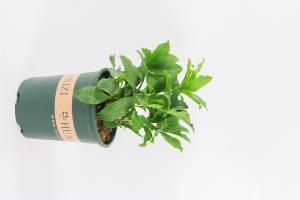Does Chlorine in Tap Water Harm Plants?
Tap water, also known as municipal water, has been treated with chlorine to eliminate harmful bacteria and microorganisms. While safe for human consumption, the presence of chlorine in tap water may negatively impact plant growth and development. In this article, we explore the effects of chlorine on plants and provide tips on how to minimize its harmful effects.
How Does Chlorine Affect Plants?
Chlorine in tap water can cause damage to plant cells, primarily by disrupting various physiological processes, such as photosynthesis, that are necessary for plant growth. Chlorine can also cause root damage, leading to stunted growth, wilting, and even plant death.
Chlorine accumulates in the soil over time, and high levels can significantly affect soil quality. It can kill beneficial bacteria and fungi, making it difficult for plants to extract essential nutrients from the soil.
How to Minimize the Harmful Effects of Chlorine on Plants?
Here are some tips to help minimize the harmful effects of chlorine on plants:
Let tap water sit for a minimum of 24 hours before using it to water plants. This allows the chlorine in the water to dissipate before exposing it to plants.
Boil tap water for 10-15 minutes, let it cool, and then use it to water plants. Boiling the water releases the chlorine into the air, and once the water cools, it is safe for plants to absorb.
Use a water filtration system that removes chlorine before watering plants. Several water filtration systems can remove chlorine, such as reverse osmosis, activated carbon filters, and water softeners.
Use rainwater or distilled water to water plants. Rainwater is naturally free from chlorine and contains essential minerals that are beneficial to plants.
Conclusion
While tap water is safe for human consumption, it may not be the best option for watering plants due to the presence of chlorine. Chlorine can harm plant growth, disrupt soil quality, and even lead to plant death. By following the tips outlined in this article, you can minimize the harmful effects of chlorine and ensure that your plants grow and thrive.

 how many times do yo...
how many times do yo... how many planted tre...
how many planted tre... how many pine trees ...
how many pine trees ... how many pecan trees...
how many pecan trees... how many plants comp...
how many plants comp... how many plants can ...
how many plants can ... how many plants and ...
how many plants and ... how many pepper plan...
how many pepper plan...































